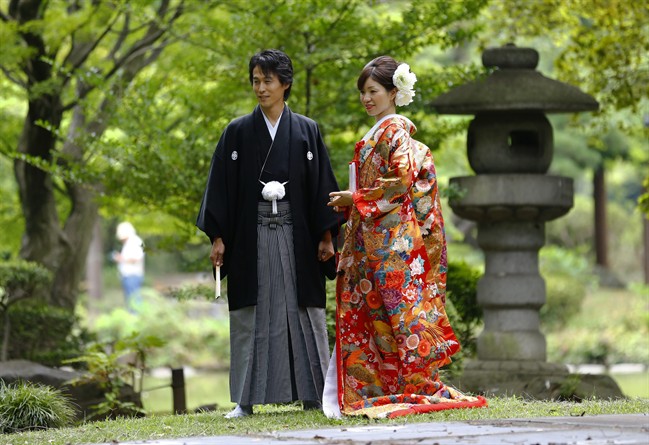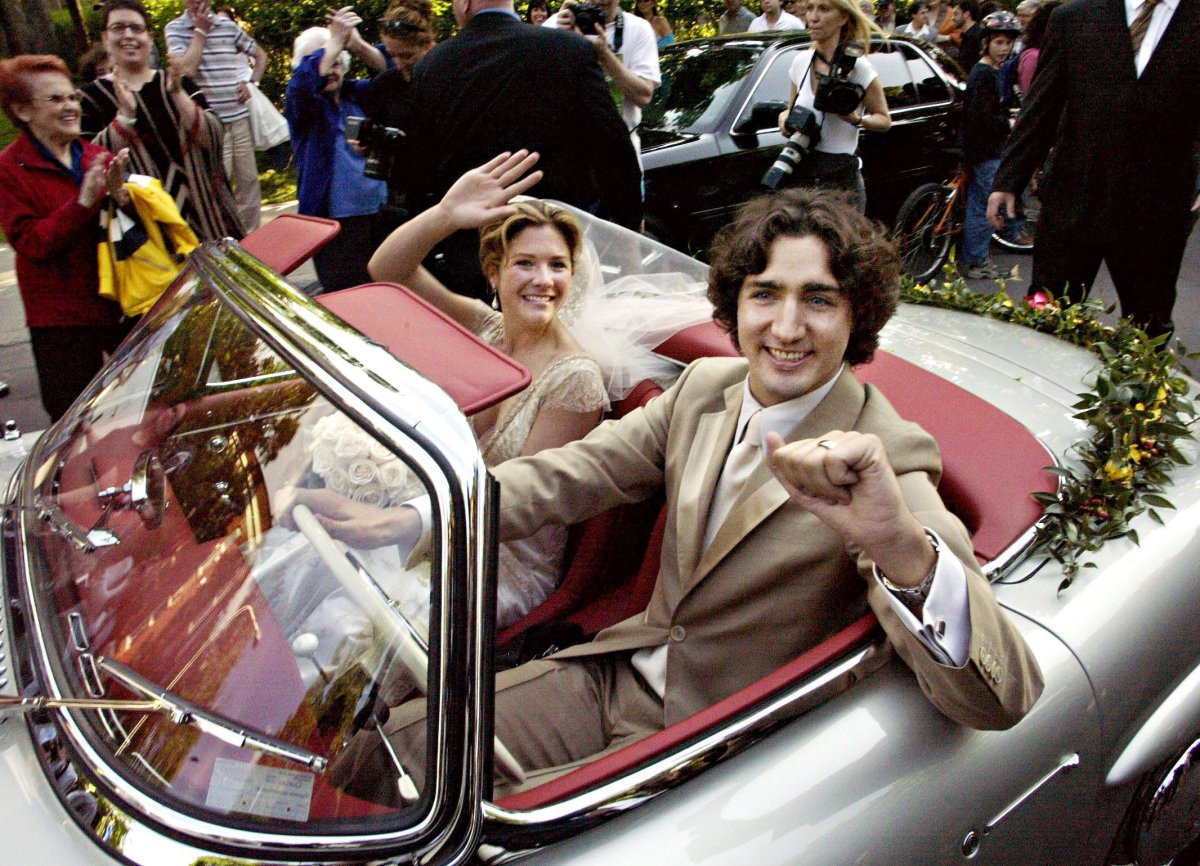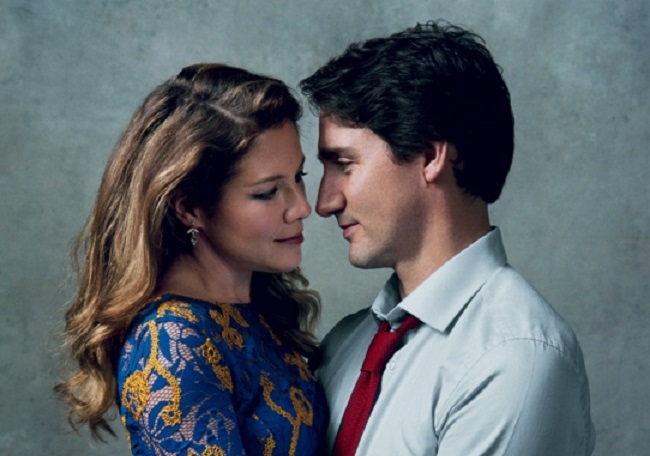The personal is once again political, on both sides of the Pacific.

As Japan’s Supreme Court upholds a law requiring married couples to have the same surname, the glamorous spouse of Canada’s new prime minister is making Canadians revisit the idea of spousal surnames.
While Japan’s policy doesn’t specify which partner must give up his or her last name, 96 per cent of the time it’s the wife.
Akemi Ujitani, among a group of people gathered outside Tokyo’s Supreme Court building, broke into tears when the ruling was announced.
“This is about women’s human rights,” she said. “This is not right.”

Quebec, for more than three decades, has taken the opposite approach.
The provincial government adopted a policy in 1981 preventing women from legally taking on their husband’s surname.
“The reason this law was adopted was to put an end to huge social pressure on women upon marrying to take the husband’s name,” said Marie-Hélène Dubé, a Montreal lawyer who specializes in family law.
“The goal was to promote equality of the spouses.”
READ MORE: Quebec one of the best places to be a woman in Canada, says study
‘Is it ridiculous to ask for freedom of choice?’
Madi Lussier, who’s in her mid 40s, was devastated to learn she wouldn’t be able to share her husband’s last name when the couple got married in 2007.
“I was quite shocked, actually. I cried.”
Lussier, born in communist Romania, grew up with the idea that “the west was the land of freedom, where people have the freedom of choice.”
Quebec’s policy hit her like a brick, she said.
“I felt someone was trying to control my life again.”
Being somewhat of a traditionalist, the very thought of having to check into a hotel with her spouse under two separate names makes her “uncomfortable,” she said in a whisper.
In 2007 she wrote an open letter to the government, which included a petition to give spouses the freedom of choice.
She contacted the province’s minister of justice; the human rights commission and then-premier Pauline Marois.
No luck.
Dubé admits Quebec’s law may have been applied “too rigorously” in the first 20 years. It can be difficult to strike the right balance between improving freedom and protecting it, she said.
“The reality is if the rule is too flexible, women can be subject to pressures … where they can be forced to do something that they don’t really want to do.”
Exceptions to the law are made only in extreme cases, such as having a name that invites ridicule, prejudice or psychological suffering.
A case can also be made if you’ve used your partner’s surname in an official capacity for five years or more.
The rule applies to Canadian women who move to Quebec after getting married in other provinces, as well.
“If you want to keep your maiden name, I totally and completely support it. But I should have the right to take my husband’s name as well,” Lussier said.
“It’s 2015. … Come on.”
READ MORE: ‘Because it’s 2015’: Trudeau’s gender-equal cabinet makes headlines around world
For many years after the 1981 law, Dubé said, it became fashionable for parents to give their children two last names. That has become less common.
For Dubé, retaining birth names feels like a defining part of Quebec culture.
“I think the rule has to be there because it’s important, it’s part of the identity for many Quebec women,” she said.
“It is for me an indication that I belong to myself.”
Lussier doesn’t buy it.
“Do I disappear as a human being if I take my husband’s name?”
Sophie’s choice
Canada’s de facto first lady recently raised eyebrows with a hyphenated version of her name: Sophie Grégoire-Trudeau.
“She should be called by her own family name. Didn’t her husband say ‘It’s 2015?’” Louise Langevin, a specialist in women’s law at Laval University in Quebec City, told The Globe and Mail last week.
“To take the name of your husband is a patriarchal tradition. … Symbolically, it’s a step backward.”
Calgary Herald columnist Naomi Lakritz disagreed.
“It turns out we women have made no progress at all. We’re still stuck in the 1970s, passing petty judgments about other women,” she wrote.
Lakritz called Quebec’s law “as oppressive as the opposite tenet of forcing a woman to change her name when she marries.”
Joke’s on them: The Prime Minister’s wife’s legal name is actually Sophie Grégoire.
“Although she is very proud that the name Grégoire-Trudeau is used, it is important to her that the name Grégoire always be present,” PMO spokesperson Olivier Duchesneau told Global News.
She also gave the name Grégoire to her son Hadrien as a middle name to make sure it stays in the family, Duchesneau added.
READ MORE: Lunch with Sophie Grégoire-Trudeau
With files from Mari Yamaguchi and Yuri Kageyama, The Associated Press












Comments